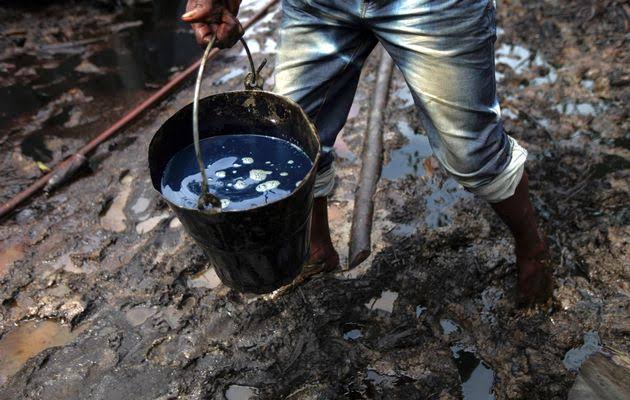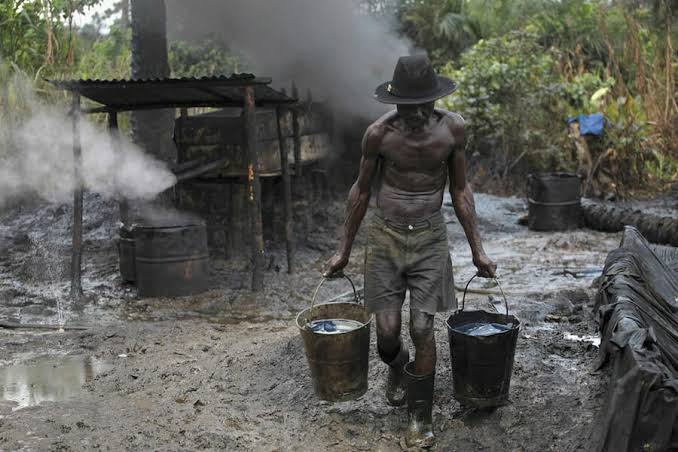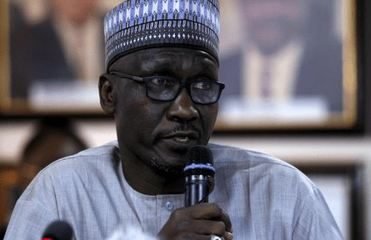Editorial
As Oil Theft Goes Beyond Crisis Point In Nigeria

In the course of this week, a world-renowned organization published something about Nigeria which should be of immense concern to every citizen but the nation was too distracted to pay attention or be bothered. The sophistry and theatrics of politicians coupled with the zoning debate kept the people so engrossed that nothing else mattered. But the cataclysmic categorization of what is ailing Nigeria matters a lot, much more than the ongoing activities leading up to the 2023 elections. Just as bandit-terrorists have made life miserable for Nigerians, that is how bandit-terrorists of a different hue have pauperized the country, making the state virtually insolvent. Who would have thought that Nigeria’s oil sector would be so plagued that it now records all-time low crude oil production of 1.49 million barrels per day!
In a report titled: “Nigeria Suffers Record Levels of Oil Theft,” the global mining and consultancy research group, Wood McKenzie asserted that the challenge of crude oil theft in the country has gone beyond a crisis point. According to the report, “Oil thefts have gone beyond crisis point and are deterring investment in the onshore. Crude theft and sabotage have long been problems in Nigeria, but 2021 saw record levels of theft. Thefts combined with export terminal and pipeline shut-downs are limiting Nigeria’s ability to ramp up production and take advantage of high prices. Onshore operators are spending to secure current production rather than grow it. This represents a huge opportunity cost.”
The Nigerian Upstream Petroleum Regulatory Commission (NUPRC) disclosed that stolen volumes of crude oil cost Nigeria up to $3.27 billion in oil shut-ins as Wood McKenzie asserted that “the scale and sophistication of crude thefts suggests an organised operation on an industrial scale”. It bears pointing out that what was published by the global consultancy research group about the oil section is not news to the Nigerian government, players in the industry and conscientious citizens. It is disconcerting for a situation that has gone beyond crisis not to be tackled with the requisite urgency and seriousness, particularly in the face of the nation’s financial woes.

The stats can’t be grimmer than were put out by the Group Managing Director of Nigerian National Petroleum Company (NNPC) Ltd, Mele Kyari when he appeared before the House of Representatives Committee on Petroleum (Upstream) yesterday. He said, “From January till date, we lost an average of 250,000 barrels per day and at the current price of about $100 to the barrel, even within this short period, we have lost close to $1.5 billion. This situation deteriorated to the extent that by March 7, 2022, it came to zero and so, we shut down the line and declared Force Majeure. Even on our most reliable pipeline which is the Forcados pipeline, we still lose about 7000 barrels per day. Needless to say that this is all coming as a result of the acts of vandals and oil thieves”.
Before now, the Chairman of Heirs Oil and Gas, Tony Elumelu disclosed that 95 per cent of oil production in the country is lost to thieves. This industrial-scale theft cannot be detached from the pervasive poverty in the country such that 90 per cent of the citizens are living in lack and deprivation. It is the commonwealth of the country that is so blindly stolen with serious implications for new investments in the upstream sector. How can foreign investors come when the ones here are increasingly closing shop following the nefarious activities of vandals? There is the Bonny Terminal that should be receiving over 200,000 barrels of crude oil per day but gets less than 3,000 barrels while bunkerers corner the rest. This development forced Shell, the operator of the oil facility, to declare a Force Majeure.
The situation is so bad that Nigeria has repeatedly been unable to meet its OPEC quota of oil production. The country has been so pummelled that the government is now cutting projected daily oil production by 283,000 barrels. This means that the crude oil produced from the nation’s oil wells will now be 1.6 million barrels per day rather than the 1.83 million BPD estimate in the 2022 budget. The implications are there for all to see as the General Overseer of the Redeemed Christian Church of God (RCCG), Enoch Adeboye recently lamented that “more than 80 per cent of all the oil we are producing is been stolen and nobody has denied it, it came from the government”. He rightly linked the leakage in the nation’s prime revenue source to the government’s recourse to more borrowings.

Perhaps, about the same time, the cleric said this in a sermon to his congregation, President Buhari was writing a letter to tell the National Assembly of his intention to finance N7.4trn deficit in the 2022 Budget with fresh loans. In the letter read during Thursday’s plenary by Speaker Femi Gbajabiamila, Buhari called for some adjustments in the extant Medium Term Expenditure Framework (MTEF) following the “significant lower oil volume due principally to production shutdown as a result of massive crude oil theft between production platforms and terminals”. Naija News considers it outrageous for the President to be well aware of this “massive crude oil theft” without wrestling the oil rogues to the ground. We don’t understand how a country in financial doldrums will opt for debt traps when it can get about plugging the loopholes that cause revenue shortages.
We call on Nigerians and civil society organizations who readily criticize the mounting public debts to focus on the disease and not the symptom. Nigeria can’t afford to allow vandals to help themselves with the nation’s commonwealth while it goes about borrowing to keep the engine of state running. Oil theft is the major reason why the federal government seeks to heave the fuel subsidy burden. If Nigeria is meeting the oil output quota given to it by OPEC, Naira will fare better against the dollar. If there were no crude oil theft, sustaining the fuel subsidy regime won’t pose much of a challenge to the government. Most states are defaulting on the payment of workers’ salaries due to the dwindling sum they get from the Federation Accounts Allocation Committee meeting. After spending N210 billion on fuel subsidy in January 2022, NNPC said it had nothing left from domestic crude to remit to the federation account.
Nigerians therefore cannot but demand a cessation of the wanton terrorism of the mainstay of the country’s economy. It has been reported that the monetary value of the crude oil stolen in the country between 2016 and 2020 can construct at least 138 Type 3 primary health care centres in each of Nigeria’s 774 local government areas. Citizens must therefore rise to the occasion by pressing the government to go all out against this sabotage.
The NSCDC and the Nigerian Navy must live up to the raison d’être for their existence and funding by the tax payers. They can use non-kinetic measures to the Niger Delta people more involved in safeguarding oil installations in their communities. Naija News calls for the menace of crude oil theft to be a major issue in the campaigns for the 2023 presidential polls. The electorate must seek to elect the candidate and party with a clear roadmap to routing crude oil thieves and ensuring that as Pastor Adeboye puts it, “80 per cent of what should have been the income of a nation doesn’t go to the hands of some people”.












